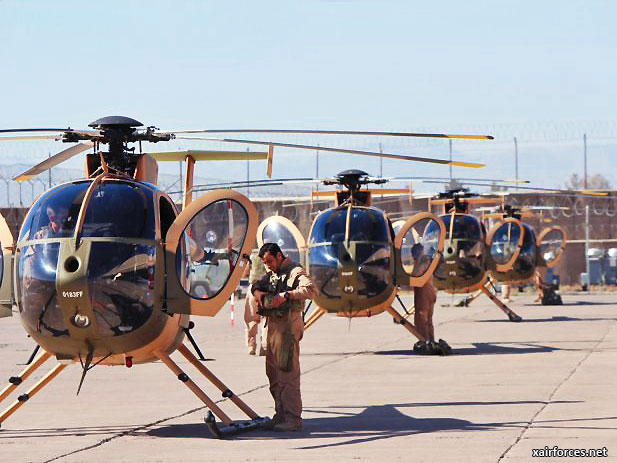
Afghans Urged to Take All Military Tasks Except Aviation

Afghan military forces are being pushed to take over all operational tasks except aviation missions by 2015, when most American and allied troops are scheduled to have departed the country, according to a U.S. officer.
“They should be able to do all the tasks except perhaps aviation, close air support, that might be the one outlier we are still going to be involved in,” U.S. Marine Corps Major General Lawrence Nicholson, the deputy chief of staff for operations with the International Security Assistance Force, said today in Kabul. “We have 24 months to get that right.”
Nicholson briefed reporters after U.S. Defense Secretary Leon Panetta arrived to meet with military commanders and Afghan President Hamid Karzai to discuss troop levels after 2014, when President Barack Obama has pledged to remove most of the 66,000 U.S. forces now in the country.
“I look forward to having a firsthand view,” Panetta told reporters accompanying him on the plane to Kabul. “This will help me as we set the groundwork for decisions” to be made by Obama.
U.S. and coalition forces are “not going to be moving troops by helicopters, we are not going to be doing engineering, explosive ordnance disposal, those things are going to be done by them” after 2014, Nicholson said of the Afghan forces.
Nicholson said the coalition forces now are doing less “partnering” with Afghan forces, instead providing aviation and surface fire support, bomb disposal, route clearance and medical evacuation.
Troop Numbers
Nicholson declined to say how many troops will be required after 2014. The Los Angeles Times today reported that the administration may retain as few as 6,000 U.S. troops after 2014.
While the U.S. and Afghanistan signed a strategic framework agreement in May that calls for a U.S. troop presence beyond 2014, they are now negotiating a “status of forces agreement” that would resolve issues such as the U.S. insistence on immunity from Afghan legal action against personnel who remain.
A Pentagon report issued Dec. 9 set out a list of challenges facing Afghanistan, including terrorist safe havens in Pakistan.
“The Taliban-led insurgency and its al-Qaeda affiliates still operate from sanctuaries in Pakistan,” according to the report’s executive summary. “The insurgency’s safe havens in Pakistan, the limited institutional capacity of the Afghan government and endemic corruption remain the greatest risks to long-term stability and sustainable security in Afghanistan.”
Source: By Gopal Ratnam / Bloomberg News - 11 December 2012
Photo: An Afghan Air Force MD-530F Light Attack Helicopters (Photo by asian-defence.com)
(11.12.2012)
|